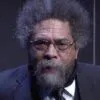This college, therefore, from its earliest beginnings, has recognized and its graduates have recognized, that the purpose of education is not merely to advance the economic self-interest of its graduates. The people of California, as much if not more than the people of any other State, have supported their colleges and universities and their schools because they recognize how important it is to the maintenance of a free society that its citizens be well educated.
John F. Kennedy (1917-1963) US President (1961-63)
Speech (1962-03-23), University of California, Berkeley
(Source)
Quotations about:
higher education
Note not all quotations have been tagged, so Search may find additional quotes on this topic.
If we turn away from knowledge and truth, we will not succeed. If we believe the worst and suspect the best, we alone will suffer. If we deny our progress, if we are against all of it, if we tear down our accomplishments, we will fill the world with sorrow, and we will blemish our own name with shame.
But if we are courageous and farsighted and farseeing, if we have no fear of the truth, if we seek only after light, then we and our children and our children’s children shall know the greatness of this wonderful, beautiful land we call America.Lyndon B. Johnson (1908-1973) American politician, educator, US President (1963-69)
Speech (1964-09-28), Convocation, Brown University
(Source)
On government support of higher education, research, and scholarship.
Even within the university world, where the highest calling should be to spark the fires of intellectual exploration and to prepare young minds for engaged and productive participation in our democracy, the mandates of the market have attained prominence. The narrow quest for success crowds out the noble effort to be great — greatness understood as using one’s success to make the world a better place for all.
Cornel West (b. 1953) American philosopher, political activist, social critic
Democracy Matters, ch. 6 (2004)
(Source)
In short, the contradiction in the old defense of class stratification is that it defends leisure for the leisure class, but not for the underclass. With reference to the underclass, leisure is said to destroy the incentive to work, leads to slothfulness and self-indulgence, and retards cognitive and moral development. When applied to the leisure class, the concept evokes an image of Plato and Aristotle, whose leisure was based on slave labor, creating the intellectual foundations of Western civilization; or patrician slave-owners like Washington and Jefferson laying the foundations of American civilization; or creative aristocrats like Count Leo Tolstoy or Bertrand, Earl Russell; or, even closer to home, of our own sons and daughters (or of ourselves, when we were young adults) being freed from the stultifying tasks of earning a living until well into our adult years so that we could study in expensive universities to gain specialized knowledge and skills.
James Gilligan (b. c. 1936) American psychiatrist and author
Preventing Violence, ch. 5 (2001)
(Source)





